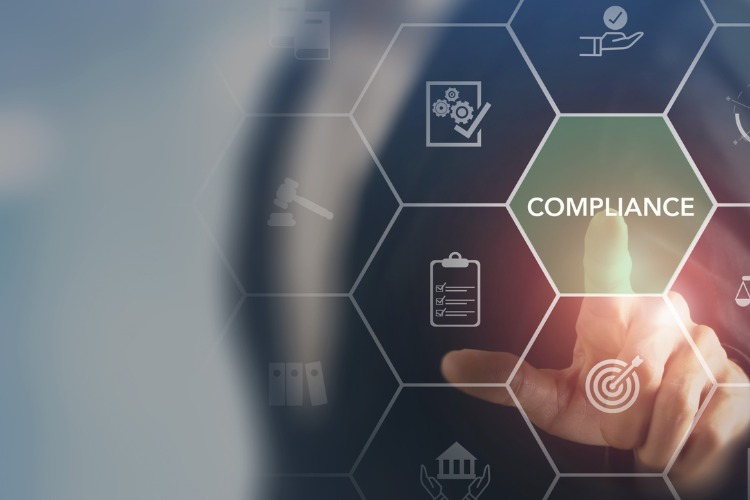SOC 2 and Cloud Security: What You Need to Know
You’ve probably heard of SOC 2 if you work in tech, but do you really understand what it is?
In short, SOC 2 compliance is an auditing procedure that checks how companies store customer data in the cloud. It makes sure your data stays private and secure. This blog further breaks down what SOC 2 means, who needs it, and how companies get certified.
Whether you're an information security specialist or a curious SaaS startup founder, this article has everything you need to know about SOC 2 and keeping your data safe in the cloud. Read on to understand what SOC 2 is in easy-to-understand terms.
What is SOC 2 Compliance?
To understand SOC 2 compliance, you first need to know what a SOC 2 report is. SOC stands for “Service Organization Control” and SOC 2 reports evaluate a company’s cloud security, privacy, and availability practices.
If a company has a SOC 2 report, it means an independent auditor has assessed their security controls and procedures to ensure they meet certain standards. There are five sections in a SOC 2 report: privacy, security, confidentiality, processing integrity, and availability. To become SOC 2 compliant, companies must establish and follow strict policies and procedures related to all five sections.
Achieving SOC 2 compliance is essential for companies that handle sensitive customer data in the cloud. It provides assurance to customers that their data and systems will be protected. If you’re choosing a cloud service provider, look for one with a SOC 2 report to ensure they value security, have the proper controls in place, and undergo regular audits to detect any weaknesses.
While compliance may seem complicated, the key things to know are: SOC 2 reports evaluate a company’s cloud security and privacy; they are issued by independent auditors; and they help provide transparency and trust in how companies handle your data. Thankfully, there are SOC 2 automation tools to make the process of getting compliant much easier.
If data security and privacy matter for your business, requiring SOC 2 compliance from vendors and partners is a must. With stronger data protection regulations on the rise, SOC 2 will only become more important over time.
Key Components of SOC 2 Reports
To understand SOC 2 reports, you need to know the key components. SOC 2 reports evaluate how well a service organization's controls meet the Trust Services Criteria. This set of standards focuses on security, availability, processing integrity, confidentiality, and privacy. For cloud security, reports usually examine controls around security and confidentiality.
Type 1 vs Type 2 Reports
Type 1 reports describe the service organization's controls and whether they're suitably designed. Type 2 reports test if controls were operating effectively over a period of time. For cloud security, Type 2 reports are preferable since they show if controls were actually working.
Control Objectives
The service organization selects 3-10 control objectives to evaluate. For cloud security, common objectives include limiting access, encrypting data, monitoring systems, and managing changes. The report describes tests done to ensure these objectives were achieved.
Management Assertion
The management assertion is the service organization's confirmation about the effectiveness of controls. For the report to be issued, management must assert that controls were effective in achieving objectives.
Auditor's Opinion
The auditor's opinion is their verdict on whether the controls were fairly presented and achieved the control objectives. An "unqualified" opinion means controls were suitably designed and operating as intended. A "qualified" opinion means some controls weren't effective and need improvement.
Achieving SOC 2 Compliance for Cloud Security
To achieve SOC 2 compliance, cloud service providers must establish and follow strict security policies and procedures. They need to protect your data and systems, monitor for threats, and prevent unauthorized access.
Security Controls
SOC 2 requires cloud providers to implement certain security controls like access management, risk assessment, monitoring, and incident response. They must control who can access your data and systems and monitor for suspicious activity. They also need to routinely evaluate risks, test security controls, and have plans in place to respond to any incidents.
Audits
To become SOC 2 certified, cloud providers undergo independent audits to ensure they meet all the necessary security standards. Auditors review their security policies, procedures, and controls to confirm they work as intended to protect customer data. Providers must pass these audits annually to maintain their certification.
Transparency
SOC 2 also requires transparency from cloud providers. They must disclose details about their security practices, risks, and compliance so you know exactly how your data and systems are protected. This transparency is important for customers to make informed decisions about using their services.
Automation
Opting for an automation tool that can handle the above can make the journey of getting SOC 2 compliant much smoother. Cloud servers look for a tool that can automatically collect evidence, assess risks, monitor for threats and help you respond to incidents effectively. This way, they’re able to streamline their compliance efforts without adding unnecessary stress to their team.
What Does Being SOC 2 Compliant Mean For You?
The bottom line is that SOC 2 compliance is crucial for any cloud services provider that handles sensitive data. It gives customers assurance that they have the right controls in place to keep their information secure. While getting SOC 2 certified isn't easy to achieve alone, it's worth the investment - not only does it help you win business and customer trust, it makes your own operations more efficient too.
So next time you're evaluating a potential cloud vendor yourself, be sure to ask about their SOC 2 compliance. It tells you a lot about how seriously they take security and how well they'll be able to protect your data in the cloud.

